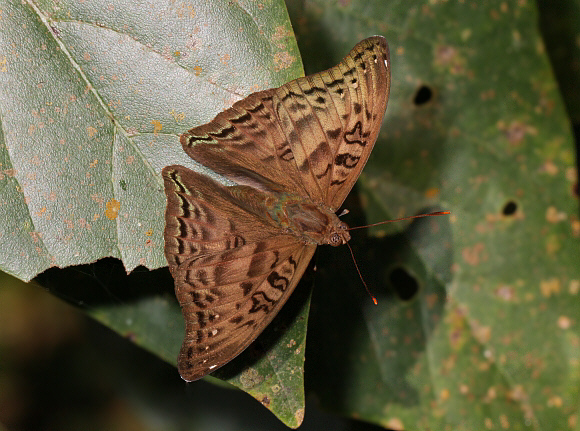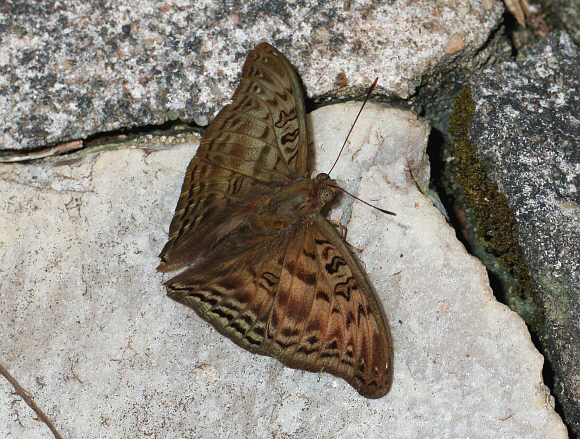
Introduction
There are between 10-15 species in the genus Euryphura – the exact number is undetermined due to the uncertain status of E. chalcis, which will probably at some future date be split into 5 or 6 individual species. The genus is entirely Afrotropical in distribution.
Euryphura chalcis ( also known by the names ochracea, doralise, aurantiaca, conformis, claudianus, albimargo, oliva and vansomeri, all of which may turn out to be full species ) is found throughout the forest zone of sub-Saharan Africa, from Senegal to western Kenya and n.w. Zambia. It is likely however that each of the “forms” listed above will be found to have a restricted range.

Habitats
This is a common species found in secondary and primary rainforest at altitudes between sea level and about 1000m. It can also be found along riparian edges in savannah / woodland mosaics, and in arboreta, parks and suburban gardens.
Lifecycle
The larval foodplants include Hugonia ( Linaceae ), Ventilago ( Rhamnaceae ), Pterocarpus, Cassia, Dalbergia ( Fabaceae ), Celtis ( Ulmaceae ), and Hippocratea ( Celastraceae ).
Adult behaviour
In the morning both sexes visit forest hilltops where courtship and copulation take place, although on the plains this usually happens instead along sunlit logging roads or in forest clearings. In both cases the males perch on tree foliage, form which they fly down to intercept passing females.
Both sexes commonly imbibe mineralised moisture from forest roads. Both sexes also visit rotting fruit on the forest floor.
